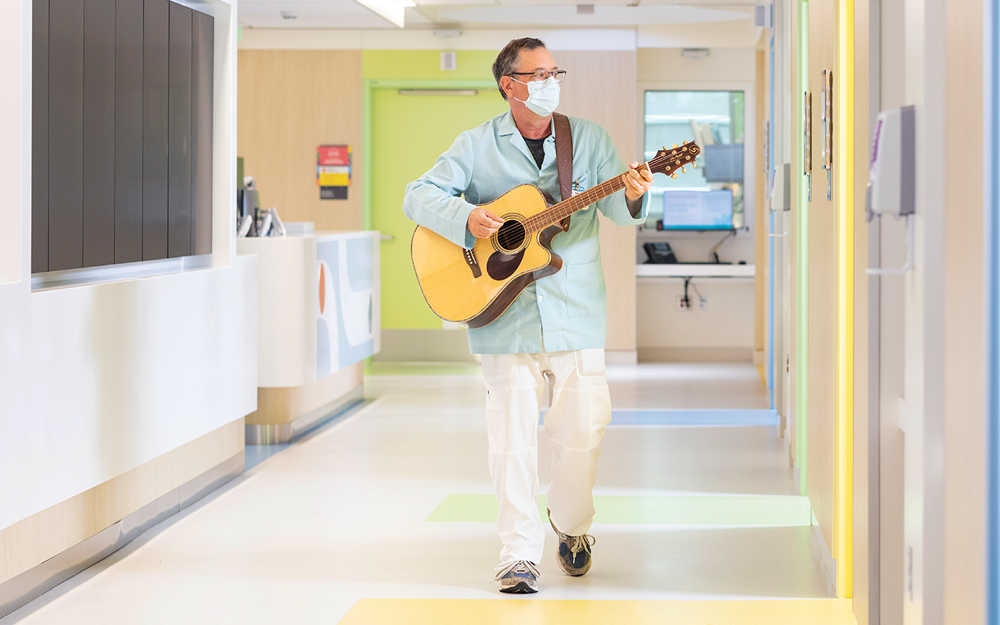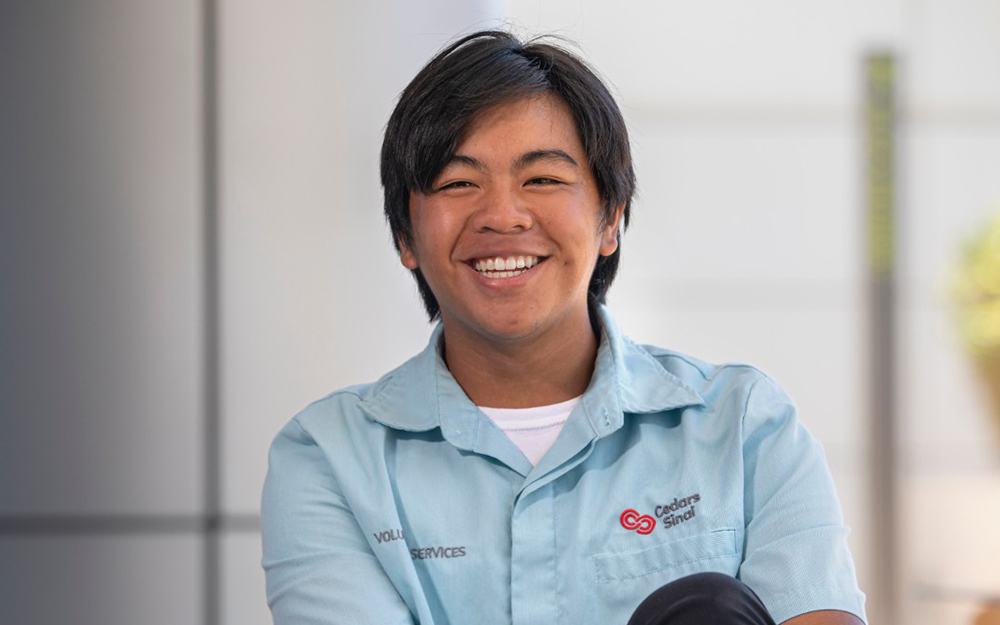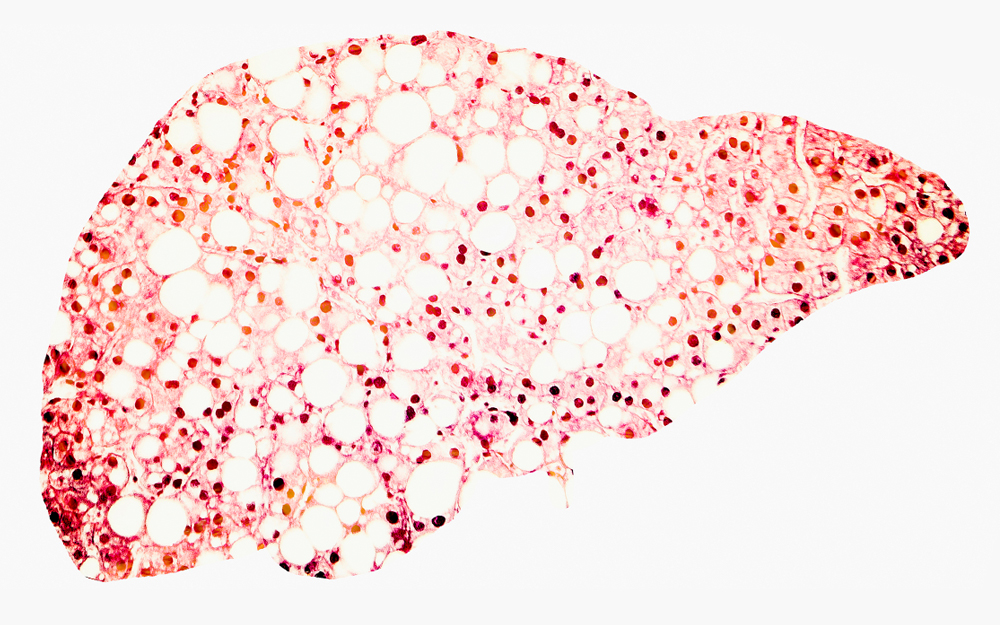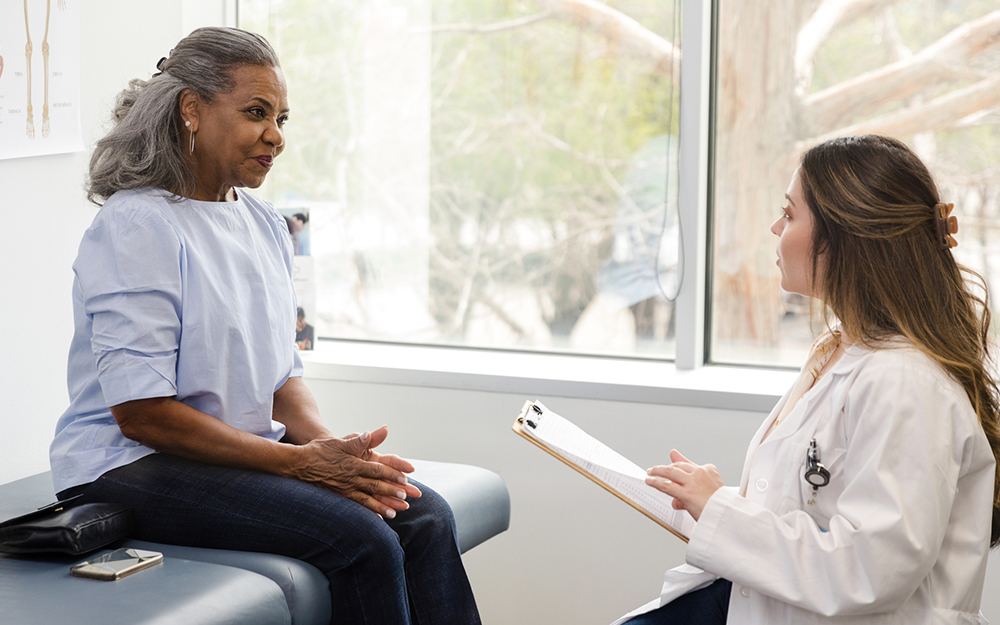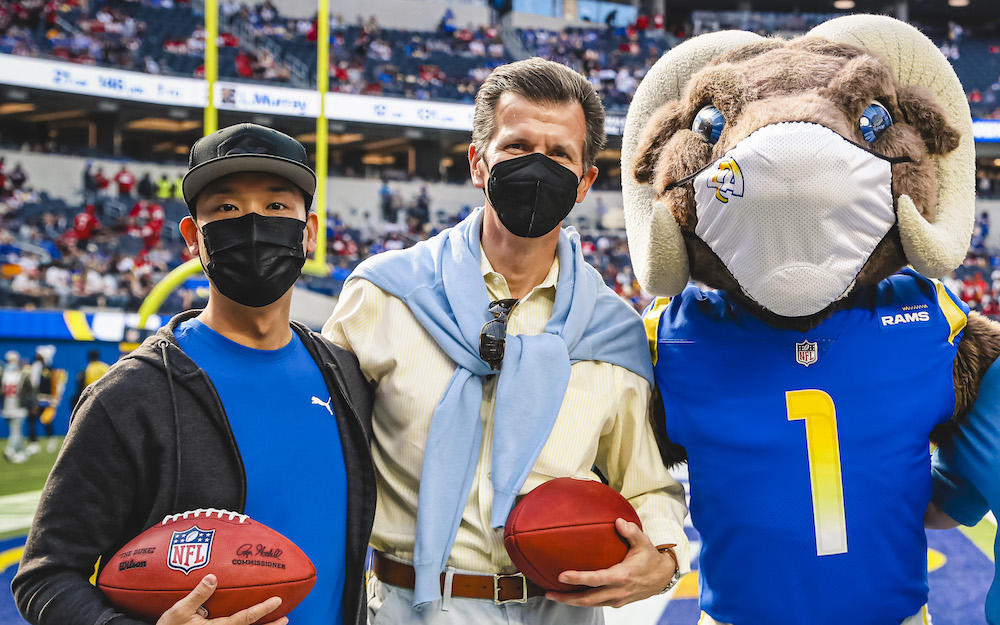Social Support Brings Laughter, Joy and Connection Back
Date
September 2, 2022
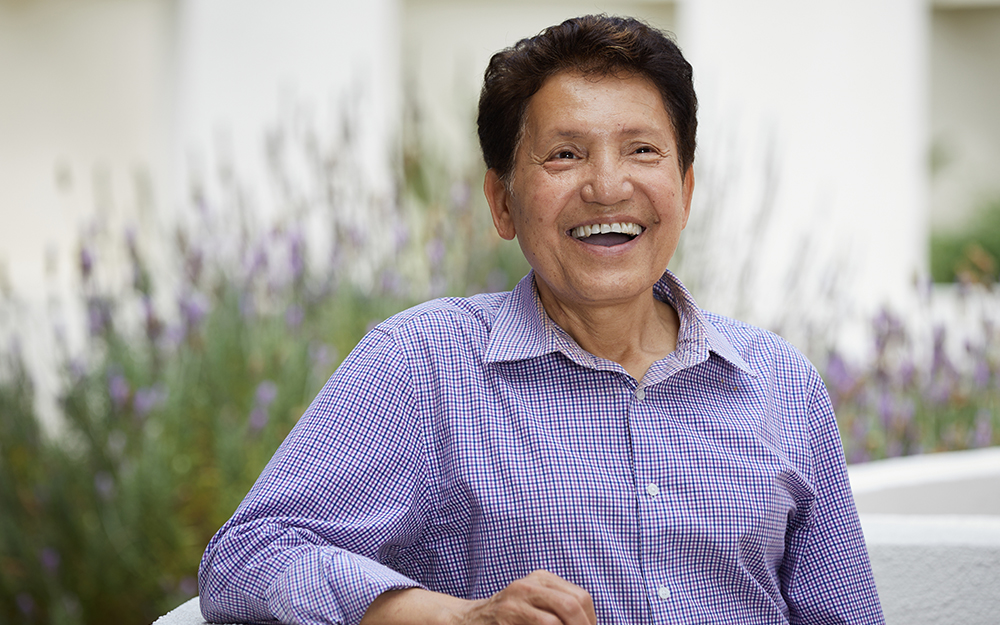
Date
September 2, 2022
Credits
Medical providers featured in this article
In Brief
{{cta-block}}
For nearly four decades, conversations flowed easily from Azael Cedeno's salon chair while he washed, cut, colored and styled hair. He swapped jokes and stories of the latest shows, of his small hometown—Paritilla, Panama—and of artists like Barbra Streisand that drew him to Los Angeles in the early 1980s. He never meant to stay, he says with a laugh, but he quickly befriended everyone in the neighborhood and got to work studying cosmetology.
On New Year's Day in 1986, Azael was sweeping his station at a closed salon when a man pretending to want a haircut shot him at close range, hitting just above the bone between his right eye and ear. He called 911 and was rushed to Cedars-Sinai, where he was hospitalized for three days. The young stylist survived—with no lasting damage.
"God was with me," says Azael, a lifelong Catholic and longtime parishioner at St. Brendan Catholic Church.
In November 2021, another medical emergency brought the now-retired Azael back to Cedars-Sinai. The entire right side of his body—his face, tongue, arm and foot—had fallen asleep. His neurology team confirmed the 68-year-old had experienced an ischemic stroke, cutting off blood flow and oxygen to his brain, and performed a successful surgery to clear the arterial blockage.
"I must be here for a reason," Azael says.
"The stroke left Azael anxious and feeling that he wasn't able to do things for himself anymore."
Lasting side effects
The stroke's impact finally forced Azael to slow down. He lost significant vision in his right eye, causing the appearance of lines known as "field cuts" (hemianopsia).
Eyesight is a common challenge for stroke survivors, with most (about 65%) experiencing some type of visual impairment, according to the American Stroke Association.
Since the brain controls memory, dementia is another frequent side effect of strokes, especially in older patients such as Azael. Names, numbers and dates get fuzzy now for Azael. Sometimes he loses track of what he was saying. And remembering to take his blood pressure and diabetes medications is often a challenge.
"I have to work hard to remember things," he explains quietly.
While he was able to regain most movement and speech, the stroke interrupted the independent lifestyle he had led for so long. Azael, who lives alone in a Beverly Hills senior community, became afraid to cook because he couldn't see the flame on the stovetop.
When walking, he had to move slowly and focus on the ground.
And far away from his family in Panama, he struggled to find his way to the doctor's appointments that were crucial to getting his health back on track.
"Before, I used to talk to everyone and go out with everyone," Azael says. "Now, I have to be more careful with where I walk, whom I go with, whom I speak to and what I touch."
The normally light-hearted Azael found himself crying easily and often.
"The stroke left him anxious and feeling that he wasn't able to do things for himself anymore," says Cedars-Sinai Community Health Worker Lesley Moreno.
Caring for the whole person
Azael's Cedars-Sinai case manager referred him to Lesley and the Community Connect Program in May 2022.
Community health workers in the program identify the social needs of vulnerable patients like Azael and lend their support through home visits and phone calls. The navigators provide companionship while linking patients to longer-term services such as housing, nutrition, health literacy, transportation, interpretation, financial assistance and medical care.
Cedars-Sinai's three community health workers are integrated into medical teams in select inpatient and outpatient care settings, including clinics throughout the Los Angeles region and the Ruth and Harry Roman Emergency Department at Cedars-Sinai Medical Center.
The initiative is part of a larger Cedars-Sinai effort to care for the whole patient and address the social factors affecting their health and quality of life.
Lesley, who has seen about 50 patients in her role, says the program fills a critical gap in the community.
"I don't know what Azael would be doing without a community health worker," says Lesley, who oversees both English- and Spanish-speaking patients.
In Discoveries: Community Health Workers Go Beyond the Exam Room
Belly laughs
Lesley worked with Los Angeles County to establish Azael's case with In-Home Supportive Services. She walked him through the application process for a Spanish-speaking caregiver and transportation services and, within a month, secured both.
The new provider, Maria Rodriguez, assists him three days per week with housekeeping and errands, such as taking Azael to doctor's appointments and grocery shopping. She constantly reminds him to take his medications, which allow him to keep his blood pressure and sugar in check—and better control the health conditions that magnify his stroke risk.
The caregiver also regularly cooks Azael's favorite dishes like arroz con pollo (chicken and rice), boiled green bananas and salads.
"Now there's enough here for me to eat every day," he says.
Azael has formed a strong connection with his caretaker, laughing, chatting and eating together. The pair share a sense of humor.
"I think having Maria there will just bring Azael back to the person he was before the stroke," Lesley explains.
He wears a smile now whenever they speak.
"His anxiety has calmed down, and he's much less isolated," she adds.
Keeping the faith
Azael tears up remembering how his faith has carried him through whenever he's faced problems or danger—even when he hasn't always understood why. This time, the help showed up in the form of a care team who surprised him with their tenderness and love.
"They tell me stories to help me relax and speak so sweetly to me," he says.
In the wake of his stroke, Azael had to learn to rely on others to keep him safe for the first time, his care team says.
"Everyone at some point needs a hand to guide them in the right direction," Lesley says.
She stresses that anyone who is struggling should reach out for support—whether to family and friends or healthcare providers.
The Community Connect Program is part of a larger Cedars-Sinai initiative that screens for challenges affecting a patient's health—such as food access, transportation and housing—and includes an electronic referral platform, community partnerships and health workers. Social workers in certain medical teams can refer patients to the program. You can also discuss available supportive resources with your medical provider or caregiver.
"I know sometimes it can be scary, but it's OK to ask for help," she adds. "Don't be afraid. We are here to assist you."

